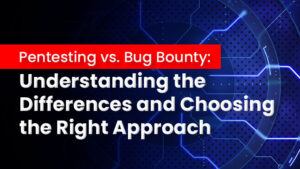Introduction
Google is a technology giant at the forefront of cybersecurity innovations, consistently leading the way in protecting its vast network of products and services. With a commitment to enhancing digital security and privacy, Google has introduced a range of groundbreaking initiatives and technologies. These advancements include technology, software, and cutting-edge techniques for dealing with the ever-changing spectrum of cyber threats. This article covers detailed knowledge of Google’s cybersecurity innovations.
Check Out Our Google Cloud Courses Now!
Google is at the forefront of cybersecurity innovation, developing new technologies and solutions to protect users from emerging threats. Some of Google’s most notable cybersecurity innovations include:
- AI-Enabled Security: Google uses AI in a variety of ways to improve the security of its products and services. For example, AI is used to:
- Detect and block spam and phishing emails in Gmail. AI is trained on a massive dataset of spam and phishing emails, which allows it to identify suspicious emails with high accuracy.
- Identify and remove malware from Google Play. AI is used to scan apps for malware, and to identify apps that exhibit suspicious behavior.
- Detect and block malicious traffic on Google Cloud Platform. AI is used to monitor network traffic for signs of malicious activity, such as denial-of-service attacks and data breaches.
- Post-Quantum Cryptography: Quantum computers have the potential to break many of the cryptographic algorithms that are currently in use. This could have a devastating impact on cybersecurity, as it would allow criminals to decrypt encrypted data and compromise user accounts.
Google is developing new cryptographic algorithms that are resistant to quantum computers. These algorithms are called post-quantum cryptography (PQC) algorithms.
Google is also working to standardize PQC algorithms so that they can be widely adopted. In 2022, the National Institute of Standards and Technology (NIST) selected a PQC algorithm that Google contributed to for standardization.
- Trusted Hardware: Trusted hardware is hardware that has built-in security features. These features can help to protect users from phishing attacks and other forms of account compromise.
Google develops and uses trusted hardware, such as the Titan Security Key, to protect its users. The Titan Security Key is a physical key that users can insert into their computer to authenticate their identity. This helps protect users from phishing attacks, as it is much more difficult to phish a physical key than phishing a password.
- Google Trust Services (GTS): GTS is a free certificate authority that authenticates and encrypts connections to websites. Google uses GTS to secure its own websites, and it offers the same technology to other websites as well.
- Protected Computing: Protected Computing transforms how, when, and where data is processed to technically ensure its privacy and safety. Protected Computing uses a combination of technologies, including encryption, differential privacy, and secure multi-party computation, to protect data even while it is being processed.
Google is also a leading contributor to open-source security projects, such as OpenSSL and BoringSSL. By working with the open-source community, Google helps improve the security of software used by millions of people worldwide.
Google Cybersecurity Innovations Benefits
Google’s cybersecurity innovations offer numerous benefits, not only to Google itself but also to the broader online community. These innovations contribute to a safer and more secure digital environment by addressing various cybersecurity challenges. Here are some of the key benefits of Google’s cybersecurity innovations:
- Enhanced User Security: Google’s cybersecurity innovations help protect users from various online threats, including phishing attacks, malware, and data breaches. This, in turn, boosts user confidence and trust in using Google’s products and services.
- Mitigation of Vulnerabilities: Initiatives like Project Zero and Google’s bug bounty program contribute to identifying and mitigating vulnerabilities in software and hardware, both within and beyond Google’s ecosystem. By doing so, they prevent potential exploits by malicious actors.
- Reduced Cybercrime: Google’s efforts to combat cyber threats and malware through technologies like Safe Browsing and AI-driven security measures help reduce cybercrime by blocking access to malicious websites and apps, thus protecting users from harm.
- Secure Cloud Services: Google Cloud’s security features give customers a robust platform to host and protect their data and applications. This enables organizations to leverage cloud computing while maintaining data integrity and confidentiality.
- Stronger Mobile Security: Android security improvements, including monthly security updates and Google Play Protect, ensure mobile device users are better protected against malware and other mobile-specific threats.
- Protection of Sensitive Information: Google’s encryption and access control features help safeguard sensitive user data, making it more challenging for unauthorized individuals or entities to access personal or confidential information.
- Thought Leadership: Google’s commitment to cybersecurity research and innovation sets industry standards and influences the broader technology community. By leading in this space, Google also encourages other organizations to prioritize cybersecurity.
- Economic Impact: Cybersecurity threats and breaches can have significant economic implications. Google’s efforts help reduce the financial impact of cyberattacks on individuals and organizations, leading to a more stable digital economy.
- Global Internet Safety: Many of Google’s cybersecurity features, such as Safe Browsing, have a global reach and contribute to making the Internet a safer place for users worldwide.
Future of Google’s Cybersecurity Innovations
Here are some possible directions for the future of Google’s cybersecurity innovations:
- AI and Machine Learning Integration: Google’s use of Artificial Intelligence and Machine Learning to detect and respond to security issues will only increase.
- Zero Trust Security: Google’s BeyondCorp model, which focuses on identity-driven security rather than perimeter-based security, may continue to evolve. Google is likely to promote further adopting zero-trust principles in the industry.
- Quantum-Safe Encryption: As the threat of quantum computing to classical encryption algorithms becomes more imminent, Google may invest in quantum-safe encryption methods to protect sensitive data.
- Enhanced Cloud Security: Given the increasing popularity of cloud services, Google Cloud will almost certainly add new security capabilities to secure customer data and applications, such as enhanced multi-cloud security solutions.
- Security in IoT and Edge Computing: As these sectors evolve, Google may increase its security capabilities to address the security challenges of the Internet of Things (IoT) and edge computing.
- Privacy Enhancements: Google is expected to introduce more user-centric privacy features and controls, further empowering users to manage their data and privacy settings.
- Securing Emerging Technologies: As new technologies like 5G, AI, and blockchain become more integrated into various industries, Google will likely focus on securing these technologies and ensuring they are resilient to cyber threats.
- Supply Chain Security: With an increasing emphasis on supply chain security, Google may work to secure its supply chain and influence others to do the same.
- International Regulations and Compliance: As data protection regulations evolve, Google must adapt its cybersecurity practices to ensure compliance with various international laws.
- Security Education and Awareness: Google may continue to educate its users and partners about best security practices, helping create a more security-conscious online community.
Conclusion
Google’s cybersecurity innovations represent a significant commitment to enhancing digital security and privacy for users and organizations. These innovations are a testament to Google’s proactive approach to addressing the ever-evolving landscape of cyber threats and vulnerabilities.
By investing in cutting-edge technologies, responsible disclosure, and advanced security practices, Google offers its users and the broader online community a wide range of benefits. Google’s cybersecurity innovations have significantly and positively impacted the online world. By introducing a wide range of tools, technologies, and best practices, Google has contributed to enhanced user security, privacy protection, and reduced vulnerabilities. These innovations have benefited Google’s users, the broader online ecosystem, and the global community.







